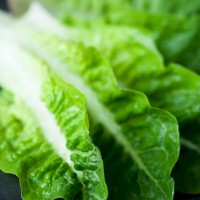Here’s a mineral you probably don’t take much notice of but is absolutely vital to our survival.
What is Manganese?
 Manganese is a trace mineral essential to humans in very small amounts. It is one of the few nutrients essential to all life on this little planet of ours. Manganese goes into the formation of many enzymes and proteins, and one of these is the life-extending superoxide dismutase. Superoxide dismutase (SOD) is a powerful antioxidant that protects the mitochondrial engines inside cells from damage. Manganese helps with metabolism, connective tissue, blood clotting, sex hormone production, calcium absorption, blood sugar balance, and brain and nerve function.
Manganese is a trace mineral essential to humans in very small amounts. It is one of the few nutrients essential to all life on this little planet of ours. Manganese goes into the formation of many enzymes and proteins, and one of these is the life-extending superoxide dismutase. Superoxide dismutase (SOD) is a powerful antioxidant that protects the mitochondrial engines inside cells from damage. Manganese helps with metabolism, connective tissue, blood clotting, sex hormone production, calcium absorption, blood sugar balance, and brain and nerve function.
How Deficiency Increases
Manganese deficiency is rare, even with many in the U.S. not getting the right daily dose each day from food. As we continue eating overly processed foods, we may expect incidences of this deficiency to rise, but there are also several lifestyle or diet choices that influence how much manganese we absorb. Antacids, birth control pills, liver disorders, excessive sweating, low calorie diets, gallbladder disorders, and the over consumption of calcium, magnesium, iron, or copper can interfere with manganese absorption and use.
Manganese, like many metallic minerals, is toxic in large doses, so you must take some care in not getting too little or too much. Most people need between 2mg and 3mg per day. Do not exceed more than 10mg per day.
The Results of Deficiency
Deficiency results in skeletal deformation, slowed healing, loss of muscle coordination, hearing loss, fainting, impaired glucose metabolism, weakened ligaments  and tendons, and infertility. Too much manganese can lead to toxicity, memory problems, confusion, loss of appetite, and neurological problems.
and tendons, and infertility. Too much manganese can lead to toxicity, memory problems, confusion, loss of appetite, and neurological problems.
Where to Find Manganese in the Diet
Manganese is plentiful in leafy greens, nuts, whole grains, seeds, legumes, and herbs. Supplements are available, but since too much manganese can be a problem, it is much safer to get your manganese from whole-food sources like vegetables. If you want a supplement, go with an all-natural, food-based vitamin rather than a synthetic manganese supplement.
Find more articles on manganese, including healthy sources and recipes, here!





